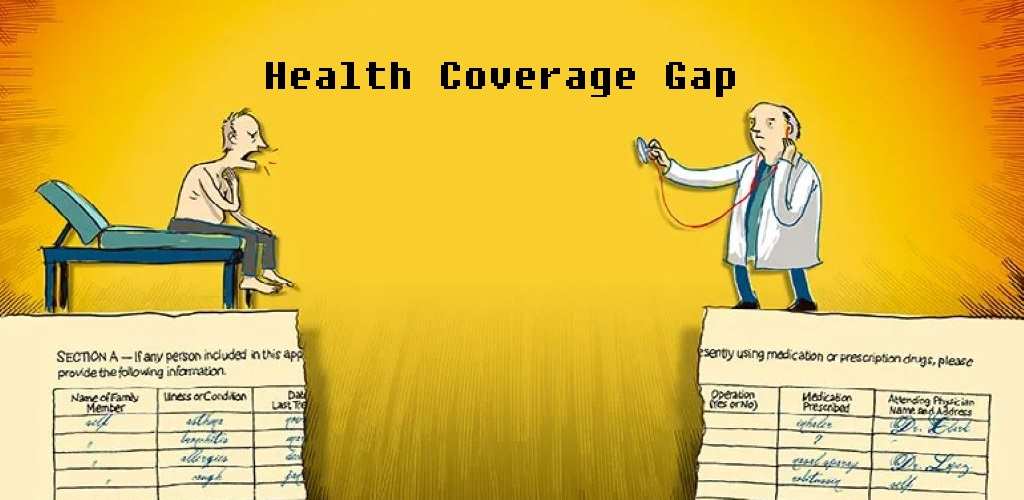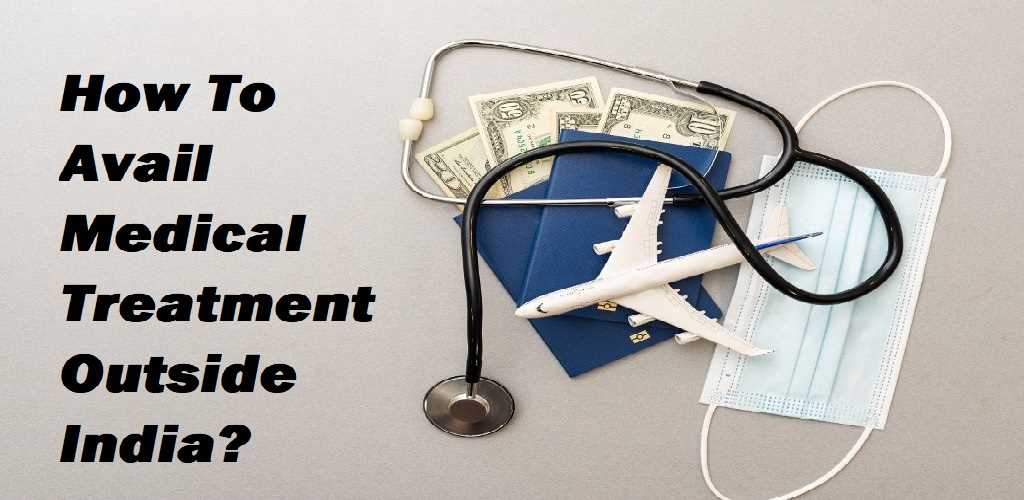The prevalence of obesity is rising in India and has become a major global concern. Although our nation has long been associated with underweight and malnourished citizens, it has recently broken into the top five countries in terms of obesity. Obesity has increased significantly by 60% in the last ten years. This demonstrates the critical need to maintain physical fitness; if an obese person is diagnosed with a serious illness, their health insurance may be refused. Nonetheless, there are a few ways that health insurance for obesity may be feasible.
Losing weight can be difficult for those who are overweight and have a higher BMI, even after exercising and going for walks. When a physician recommends “bariatric surgery” to an obese patient to prevent future medical problems, the procedure will be covered by health insurance that includes bariatric procedures.
Let’s dig deep into the health insurance for obesity!
What is Obesity & its Cause?
An abnormal or excessive build-up of fat in the body causes obesity which is a complex illness. There is a significant chance of developing additional health issues such as high blood pressure, diabetes, heart attack, stroke, and some types of cancer. Furthermore, a body with too much fat in it can change its functioning. These alterations have the potential to worsen over time and to have detrimental effects on health.
The main cause of obesity is when our calorie intake exceeds the quantity of calories that we can burn off through exercise and daily activities. Obesity is caused by the trend of consuming soda and high-calorie fast food, especially among younger people. Genetic, behavioural, metabolic, and hormonal factors can all contribute to obesity and have a significant impact on body weight.
Know the Possible Treatments for Obesity
When it comes down to treating Obesity, the following are the tips you may need to consider to lose weight and keep the side effects at bay.
Dietary Changes:
You’ll have to adjust your diet in a particular way if you want to lose weight. Some people might gain from eating smaller portions or snacks in between meals. Rather than altering their intake, some people might need to modify what they consume. Almost everyone can gain from eating more vegetables.
Reduced fat and increased fibre and vitamin content are found in fruits, vegetables, whole grains, and legumes. Even if you consume fewer calories, they are more nutritious and may make you feel satisfied and fuller.
Behavioural Therapies:
Support groups, counselling, and treatments like cognitive behavioural therapy may all help you on your weight reduction quest. These techniques can assist in rewiring your brain to encourage good changes. They can also assist you in managing stress and addressing emotional and psychological concerns that may be hindering your progress. Weight and weight reduction attempt to influence us on many levels, so having support on both the personal and practical levels may be beneficial.
Increased Physical Activity:
Maintaining a healthy weight requires both diet and exercise. Exercise need not, however, entail a gym membership. One of the best forms of exercise for weight loss is walking at a moderate pace. Healthcare experts advise 30 minutes five days a week. A daily walk before or after work, or during lunch, can have a big effect.
Medication:
In addition to other treatments, your doctor might suggest that you take medication. Although they can help in other ways, medications aren’t the only strategy for weight loss. Medications that suppress your appetite, for instance, may interfere with certain brain circuits that regulate your hunger. For some, this might be a minor piece in the jigsaw, but for others, it might be a significant one.
Surgery:
When a person receives a Class III obesity diagnosis, bariatric surgery is typically carried out. One drastic but incredibly effective way to achieve significant, long-term weight loss is through surgery. Rather than only affecting your thoughts or behaviours, it also modifies your biology. Every bariatric surgery technique modifies your digestive tract in some way. They set a cap on the amount of calories you can consume and absorb. Modifications to the hormonal components in your digestive system, also affect your appetite and metabolism.
Why You Cannot Overlook the Importance of Health Insurance?
In the previous ten years, there has been a 60% rise in obesity. Being fit is crucial, as this illustrates. However inactive exercise regimens combined with sedentary lifestyles can lead to weight gain and are a major factor in several diseases.
To treat severe cases of obesity, bariatric surgery is recommended! It involves making incisions in the digestive tract to help severely obese patients lose weight. Often referred to as weight-loss surgery, it is advised for extremely obese patients with a BMI of more than 40 after all other treatment options have been exhausted.
- In India, the starting price for weight loss surgery is INR 1,80,000 in 2023.
- In India, the average and approximate cost of bariatric surgery and weight loss surgery is INR 2,98,000.
- In India, the most weight loss surgery can cost between INR 3,00,000 and INR 5,20,000.
Therefore, you ought to think about getting full health insurance early in life. Since obesity causes a reduction in basal metabolic rate (BMR) as one age, it is generally advantageous to purchase medical insurance when one is young. It shields you from escalating medical costs and potential health problems down the road.
What is the Impact of Obesity on Health Insurance Premiums?
The cost of your health insurance premium may be too much for you if you are overweight. Paying high premiums may encourage you to reduce your BMI by going to the gym, but that will only work in the long run. You will have to pay a high premium in the near term. Purchasing health insurance through online insurance portals is one way you can reduce the premium.
Each insurer evaluates the risks of covering an overweight person using a different set of criteria. As a result, there are significant differences in the coverage and costs provided by different insurers. Before selecting health insurance, it would seem prudent to obtain and evaluate quotes via an online insurance portal. Obtaining the finest health insurance coverage is ensured by comparing quotes online.
What Advantages Does Health Insurance Offer for Obesity?
The following are the incredible benefits of considering health insurance for obesity.
Cover for Medical Costs:
Making sure you receive the best medical care without jeopardizing your finances is the main objective of health insurance. It protects you from expensive medical expenses. It includes, among other things, hospitalization, daycare services, domiciliary fees, and ambulance rates. Therefore, instead of worrying about such enormous charges, you can focus on your speedy recovery.
Combats Medical Inflation:
Treatment costs are rising due to medical inflation. Among the reasons are rising inflation and newer, more potent treatments. It can also be very challenging to save during a medical emergency due to the rapid rise in treatment costs. Because of the dire circumstances, approximately 7% of people are compelled to live below the poverty line due to medical debt. If you are covered by health insurance, you can avoid such unfortunate situations.
Shields Your Savings:
Having obesity health insurance helps you safeguard your hard-earned money. Suppose you have allocated your funds across multiple investment avenues, and an unexpected medical crisis in your family compels you to liquidate all of your holdings. If you no longer need to sell your investment to pay for the medical treatments, health insurance will protect you.
Bariatric Treatment Coverage:
In essence, bariatric surgery is a medical intervention used to treat obesity in cases where more conventional weight-loss methods, such as regular, intense exercise and dieting, have not yielded the desired outcomes. If your physician recommends bariatric surgery, having health insurance will take care of all the associated costs.
Cashless Claim or Reimbursement Benefit:
Claim settlement comes in two forms: cash reimbursement and cashless. You must be admitted to one of the insurer’s network hospitals to be eligible for this benefit. Simply fill out the pre-authorization application form and present your medical insurance card to access the cashless facility.
As an alternative, you can visit any hospital or healthcare facility of your choice for treatment, and then file a reimbursement claim by bringing in the necessary documentation and original medical bills.
What are the Exclusions under health insurance for Bariatric Surgery?
Bariatric surgery procedures are not covered by health insurance, whether they are part of a family health insurance or critical illness insurance:
- Excluded are claims submitted within 30 days of the start of the health insurance.
- Claims about pre-existing conditions are likewise not covered.
- Decorative and artistic motives
- Obesity is brought on by drugs, psychological issues, eating disorders, and untreated hormone imbalances.
Conclusion
Reducing body weight is the only way to guarantee full health coverage without having to pay an increased premium for obesity. Since it’s a better option than paying higher premiums or having your health insurance denied, paying a higher premium might encourage you to work out and lose weight.








